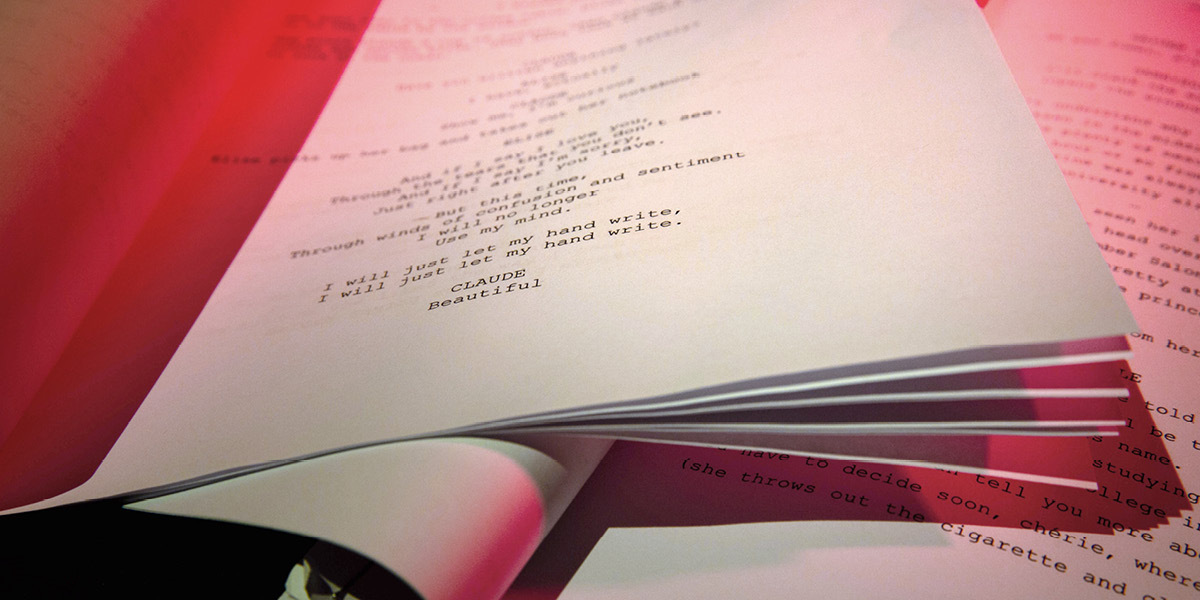Storytelling under the microscope: Story First is a talk series on serial narratives involving pre-eminent professionals of the audiovisual sector. Curated by the Media Design and New Technologies Area, the initiative belongs to the same didactic path as the Academic Master in Screenwriting for Series. In the latest event, Cristiana Farina and Maurizio Careddu (authors of "Mare Fuori") and Dina Giuseppetti (educator and counsellor in the age of development) will take the floor.
Story First: event information
A talk with Cristiana Farina, Maurizio Careddu and Dina Giuseppetti
Campus di Roma, via Ostiense, 92
Tuesday, June 6, from 6:00 PM
Event in collaboration with the Spazio Giovani and Scuola d'Arte MaTeMù/CIES.
Writing a screenplay, from Story First to the Academic Master
"Come si costruiscono personaggi e narrazioni che colpiscono al cuore" ("How to build characters and narratives that strike at the heart") is the final talk of Story First. It will focus on the impact of "Mare Fuori" on Italian pop culture. It will deepen the genesis of the project, the writing process, and the production phases. In addition, it will face the reasons for "Mare Fuori" success between teenagers and adults. Here, the core of the conversation will be the creative writing for film and series - a matter also addressed in the Academic Master in Screenwriting for Series at the Rome campus. This intensive course provides, in fact, the learning of cross-disciplinary theories, methods and practices necessary in writing for audiovisual as well as for the development of serial projects. Therefore, Story First contributed to facing a subject already explored by the Academy's proposal: that on storytelling for audiovisual productions.
On February 15, the series started with a talk by David Warren - director of Desperate Housewives, Ugly Betty and some of the most successful TV series in Italy. Here the focus was on the role of the director in seriality and how this might also change in Italy. On April 27, "Adattamento e autorialità nella scrittura seriale" ("Adaptation and authorship in serial writing") featured Simone Bozzelli (emerging director and NABA alumnus) and Gianni Tetti (screenwriter and author). Here they have shown how a narrative changes when it is adapted from a book to audiovisual media. They have explained when to revise the source text and when to adhere to it, and how to organise the creative work. To conclude, on May 24, the round table "La formazione nella scrittura seriale audiovisiva: nuovi modelli e nuove professionalità" ("Education in audiovisual writing: new models and new professions") involved the professionals of WGI - Writers Guild Italia: Vinicio Canton (Vice President - WGI, screenwriter, series creator, and NABA lecturer), Fabrizio Cristallo (Head of Development - Groenlandia/Ascent Film), Giorgio Glaviano (President - WGI, screenwriter, and novelist), and Barbara Petronio (author and creative producer). The guests addressed the topic of storytelling expansion and evolution in accordance with the development of new devices and players. They described how creative writing has changed, which skills are necessary to work in that field, and how personal work and the ability to be part of an ever-changing system matter.
